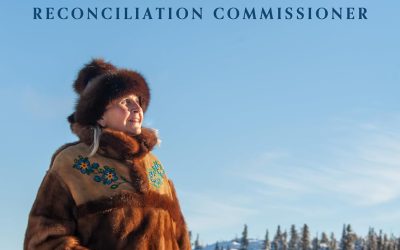
For those interested in a serious debate about Aboriginal politics in Canada, it’s evident the discussion is skewed. To see evidence, one need go no further than the Aboriginal issues section of any local bookstore, or academic journal articles on the topic. Most publications tend to rarely deviate from the following narrative: Aboriginal societies existed as nation-states and were just as advanced as European societies; all of the problems which beset indigenous communities can be attributed to “cultural loss” and colonization; and to restore full powers to First Nation communities will solve everything. To dispute any of the above assumptions is to be a “racist” or “Euro-centric” or against Aboriginal people.
Occasionally, some thinkers take these shaky assumptions to task. Disrobing the Aboriginal Industry is such a work. Written by Frances Widdowson, a political scientist from Mount Royal College, and Albert Howard, a former Aboriginal and government consultant, the work is a monumental achievement of clear thinking and a direct assault on the so-called Aboriginal Orthodoxy. It is worth reading for its honesty on so many Aboriginal issues, in particular for its refreshing analysis of cultural incompatibility.
Disrobing the Aboriginal Industry should be situated within a tradition of dissident literature on Aboriginal issues. University of Calgary Political Science Professor Tom Flanagan, in his trailblazing First Nations? Second Thoughts, clearly set the path with his clear presentation of the assumptions of the Aboriginal Orthodoxy. By dismantling each of these assumptions in turn, Flanagan demonstrated the logical inconsistency, historical revisionism and Aboriginal political advocacy that distorted Aboriginal policy, particularly in light of the release of the Royal Commission on Aboriginal Peoples. BC lawyer Mel Smith also set the path with his work Our Home or Native Land that demonstrated the problematic aspects of the Indian land claims industry. The newest work within the tradition is Dances with Dependency by Aboriginal author Calvin Helin. This work was unique in that it was by an Aboriginal and expressed within the context of Aboriginal history.
What sets Disrobing the Aboriginal Industry apart is its perspective, candour and honesty on the cultural issues, and the wealth of experience from which the book is derived. This book is the first critical look at Aboriginal politics from a leftist point of view. Widdowson and Albert Howard self-identify as historical materialists—Marxists, in layman’s terms, and argue economic forces determine culture.
The authors asserts that real left-wing analysis of Aboriginal policy requires a “critical eye rather than a bleeding heart.” They make the case that the problems which afflict First Nations are more cultural than political. For example, insofar as Aboriginal communities remain focused on pre-capitalist, kinship-based thinking still attached to traditional conceptions of governance, corruption is the result in the modern context. It is, Widdowson and Albert assert, what keeps indigenous people from enjoying the benefits of modernity.
The authors bring a unique perspective to the debate as they both worked within Aboriginal communities and witnessed first-hand many of the problems now analysed. Widdowson and Albert recount an experience while they worked with the Northwest Territories government. There, they discovered that the government was interested in aboriginal “traditional knowledge,” despite not being able to define it and which anyway interfered with actual science. The main problem, as they see it, is that this knowledge is derived from pre-scientific animistic beliefs. A central problem for the authors is the unavoidably spiritual dimensions of so much thinking on Aboriginal issues which, they caution, inform public policy and make empirical observations problematic.
They note the central problem with First Nation issues is the denial of the “developmental gap” between indigenous peoples and European societies at the time of contact. Being hunter-gatherer and horticulturalist, these societies could not integrate into a capitalist mode of production. These societies were and still are also based on kinship-based reciprocity. That means political leaders serve their family and friends first because there is no separation between the public purse and private political needs. This, argues Widdowson and Albert, explains much of the nepotism and bribery on modern First Nations reserves. They also take issue with the tribal nature of modern indigenous politics. This is negative because it prevents First Nations from seeing beyond their differences and towards an inclusive identity.
This hunter-gatherer focus is why Widdowson and Howard have such a problem with Aboriginal solutions, as when it focuses on “retreating to culture or the past.” Self-government arrangements, education and child welfare devolution are all assaulted in this work; they are seen to perpetuate hunter-gatherer cultural traits that are unsuited for modern life. Before anything else, argue the authors, First Nations need to accelerate their cultural evolution into modernity.
The only criticism that could be levelled against this book is the absence of specific solutions. The work is big on critique, but short on ways to improve. They criticize “right wing” critics of Aboriginal problems for their solutions but they do offer nothing beyond massive investments in education as their own solution. One also wonders if their Marxist ideology prevents them from seeing how free markets could help First Nations, such as how property rights provide an economic base for prosperity.
Beyond that caveat, Widdowson and Howard have produced a substantial work one that will endure. Their on-the-ground experience also allows them to avoid the claim that they write merely theory from an ivory tower. Critically, by speaking candidly about the cultural gap that exists between pre-modern life and the 21st century, they open up a new avenue for exploration of dysfunctional Aboriginal life. Their arguments should raise red flags about the current unquestioned approach; it should also be taken seriously, especially in the current rush towards Aboriginal self-government and devolution.


